See the top reasons to attend ILC as highlighted by our faculty
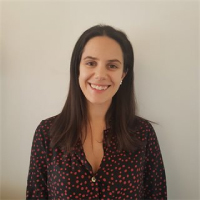
Afonso’s PhD work provided the first major insights in depicting the role of necroptosis, an immunogenic cell death pathway, in the pathogenesis of several liver diseases and the therapeutic potential resulting from its inhibition. Currently, Afonso is employed by LIVERBTT project to find emerging biomarkers, targets and therapies for non-alcoholic fatty liver disease (NAFLD).
Currently, she is focused on studying the RIPK3-dependent immune-metabolic network that controls cancer stem cell biology and contributes to liver cancer development. She was also awarded the EASL Mentorship Award 2018 with Peter R. Galle, Germany. Finally, she was selected to integrate the EASL Young Investigator task force.
What are you most looking forward to at ILC 2021?
It is always surprising to realize that attending multidisciplinary sessions about the Liver during ILC, sometimes on topics unrelated to my main area of interest, can have a profound impact on my research and career development.
What can our delegates expect to take away from your session (Young Investigator Forum: lessons learned from the COVID-19 pandemic) at ILC 2021?
I do believe that instead of being absorbed by problems, we should be focused on solutions and opportunities. In this forum, we intend to discuss the main challenges faced by YIs during the COVID19 pandemic, how to overcome them and translate the lessons into new opportunities for scientific and career development.
Why should people attend the ILC 2021?
More than ever, it has been difficult to be updated and we are hungry for interaction. So, expect a very interactive conference bursting with high-quality presentations that will discuss the latest medical and scientific advances in Hepatology.
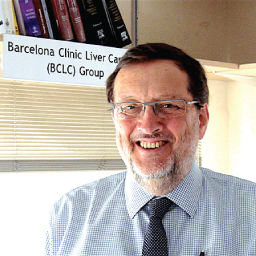
Jordi Bruix is Professor of Medicine at the University of Barcelona and Director of the Barcelona Clinic Liver Cancer Group.
He has been principal investigator of studies and clinical trials that have changed practice in the field of HCC, this including development of diagnostic criteria and prognostic models, and establishing chemoembolization, sorafenib and regorafenib as conventional therapy. He has developed and sequentially updated the BCLC staging and treatment strategy that has been endorsed by several international scientific associations to guide management of patients with HCC. He has authored more than 300 peer reviewed manuscripts and Evidence-based Practice Guidelines for Hepatocellular Carcinoma at EASL, AASLD and WGO.
What are you most looking forward to at ILC 2021?
ILC provides a superb opportunity to catch up in all fields of Hepatology thus allowing to incorporate the state-of-the-art knowledge to guide practice and open new avenues for research. Pity that it has to be virtual as one of the major benefits is the human interaction during the event. Meeting peers and past fellows, and making new relationships is something not available while being virtual.
What can our delegates expect to take away from your session (Early phase data for novel treatments in Hepatocellular Carcinoma) at ILC 2021?
The field of liver cancer has experienced a major advancement that has highly affected the area of systemic therapy. Several agents are evaluated in early phase and their promising results may prime phase 3 trials to demonstrate a survival benefit. In my session we will have relevant information about emerging options and the Q&A part will serve to critically comment the results and debate about the strength of the signals of activity that have been found. Response rate, time to progression and progression free survival are not robust surrogates and this is a major issue today.
Why should people attend the ILC 2021?
As said, ILC provides a very comprehensive programme tackling all aspects of Hepatology, from basic to clinical research, but the real definition is good research! Everybody involved in the field of Hepatology will find gems in the programme that will be appealing for their area of interest and stage of career.
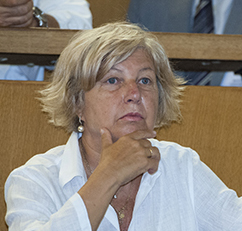
Patrizia Burra is Full Professor of Gastroenterology and Head of the Multivisceral Transplant Unit, Department of Surgery, Oncology and Gastroenterology at the Padua University, Italy. Since 2015 she is ViceRector on Research Training at Padua University.
Her main research interest is on complications of cirrhosis, alcoholic liver disease, HBV- and HCV-related liver disaese, liver tumors and liver transplantation, including compliance and quality of life.
What are you most looking forward to at ILC 2021?
To have an update on the management and treatment options for liver disease.
To learn about new discoveries in basic science in hepatology.
What can our delegates expect to take away from your session (Liver disease and the community: Improving liver health in primary care and the community) at ILC 2021?
To learn new information on the role of primary care physicians in Europe.
Discuss the flow chart of liver tests in primary care.
News on the role of social media to change the lifestyle in patients at risk of developing metabolic syndrome.
Why should people attend the ILC 2021?
Because it is the best liver meeting in the world!!!
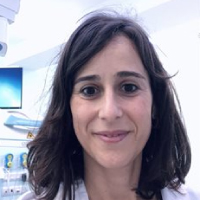
Virginia Hernández-Gea (MD, PhD) is an interventional Hepatologist working in the Liver Unit at Hospital Clinic-IDIBAPS (Barcelona). She is fully dedicated to the management of patients with portal hypertension and vascular liver diseases and performance of liver catheterization procedures including TIPS.
She also runs a translational laboratory focused on the understanding of the regulation of liver microcirculation. She is vice secretary of VALDIG, faculty of Baveno and associate editor of Liver International.
What are you most looking forward to at ILC 2021?
ILC 2021 would be a unique opportunity to get updated on the novelties in the liver disease field with a highly interactive programme and an outstanding faculty. Can’t wait to learn from the best, get new ideas and strength collaborations
What can our delegates expect to take away from your session (Meet the experts: TIPS: when to use and when not to use) at ILC 2021?
In this session we will critically review the available evidence regarding TIPS in patients with liver disease to delineate the best therapeutic window for TIPS placement. The session will be mainly focused on practical issues and common clinical dilemmas. And, remember, you can bring your own cases for discussion!
Why should people attend the ILC 2021?
It is a great opportunity for liver lovers to get broadly updated, and to be aware of the most recent advances.

Born in 1975, graduated from the medical school in Aarhus, Denmark in 2003. Since then clinical training and specialization in hepatology, alongside training in clinical epidemiology. I have published more than 100 papers, most of them in the field of hepato-epidemiology.
I currently do half-time clinical work, half-time research. My primary interests are alcoholic liver disease and hepatocellular carcinoma, most notably the value of surveillance for hepatocellular carcinoma among patients with alcoholic cirrhosis.
What are you most looking forward to at ILC 2021?
I am looking forward to attending the wide range of presentations that cover all of hepatology. I like the well-known poster, general, and parallel sessions, and I also like the newer ideas, such as the pro-et-con discussions of landmark papers. This year I will definitely attend the “How to use statistics for research in liver diseases” session, which sounds new – and exciting!
What can our delegates expect to take away from your session (EASL-WHO symposium: Interface between non-communicable diseases and liver disease) at ILC 2021?
We will have 5 interesting presentations followed by a panel discussion. The presentations focus on primary prevention of liver disease – lifestyle factors, mostly. Where are we? Where are we going? And where should we be going?
Why should people attend the ILC 2021?
The ILC is the conference for hepatologists! Be there, or be □!
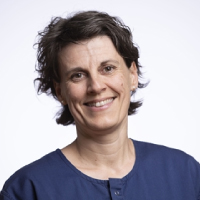
Patrizia Künzler is a Swiss registered nurse additionally prepared with a PhD in Nursing Science. For 25 years, she works in the clinic for Gastroenterology/Hepatology at the Cantonal Hospital St. Gallen. She has developed an advanced practice nurse role with a focus on nursing care for patients with chronic liver diseases.
Additionally, Patrizia Künzler gives lectures on the management of chronic diseases in the Master's program at the Institute of Nursing Science, University of Basel and is involved in ongoing research projects as a postdoc. Since 2019, she is a member of the EASL Nurse and AHPs Task Force.
What are you most looking forward to at ILC 2021?
The ILC 2021 offers an optimal platform for learning and networking.
What can our delegates expect to take away from your session (Nurses and AHP Forum: Symposium - The art and science of collaborative working) at ILC 2021?
The care of patients with or at risk of liver disease is strengthened by inter professional collaboration. Thus, patients come to different professional expertise and are optimally supported. We present and discuss this joint work using the example of palliative care.
Why should people attend the ILC 2021?
The ILC 2021 offers to look at themes and topics from different perspectives and after the ILC 2021 you can use this knowledge to promote development in research and clinical practice.
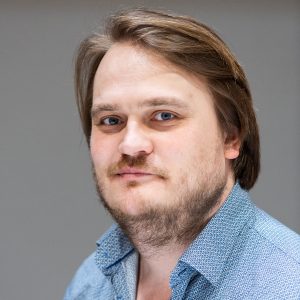
Jean-Charles Nault received his MD and PhD degrees from Paris Descartes University.
He is currently working in the liver unit of the Avicenne Hospital in Bobigny, France, placing a high priority on early detection of primary liver tumors and on therapeutic innovation.
He is also an active member of the laboratory of “functional genomics of solid tumours” at the INSERM UMR 1138 un the Cordeliers Research Center.
What are you most looking forward to at ILC 2021?
Construct a network of researchers and clinicians working on liver diseases and specially in the field of primary liver tumors. Assist to communications from expert in the field from basic to clinical research
What can our delegates expect to take away from your session (Controversial topics in Liver Cancer) at ILC 2021?
An up-to-date communication of novel, cutting edge and controversial data on epidemiology and treatment of hepatocellular carcinoma. Have access to new data on molecular classification of HCC that maybe could impact the clinical practice in the future.
Why should people attend the ILC 2021?
Have the opportunity to attend to sessions leaded by international experts in the field. Improve their knowledges on liver disease with access to the last works on basic, translational and clinical research. Build a community with other EASL members and attendees in the COVID19 area.
Have fun even with a digital meeting!
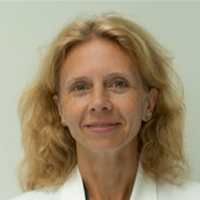
Dr. Lorenza Rimassa, graduated at the Medical School of the University of Milan (Italy) in 1993. Her post-graduate education continued with a Medical Oncology degree, achieved in 1997. She worked at the San Raffaele Institute and at the National Cancer Institute in Milan, as clinical and research fellow. Since 1998 she is working at Humanitas Cancer Center, Humanitas Research Hospital – IRCCS, in Milan. She is Deputy Director of the Medical Oncology Unit and Head of the Gastrointestinal Oncology Section. She is also Associate Professor of Medical Oncology at Humanitas University.
What are you most looking forward to at ILC 2021?
I look forward to:
1) listening to other investigators who will be presenting their new data in the field of liver cancer;
2) discussing with other colleagues the new treatment scenario for patients with advanced HCC, which is rapidly evolving, offering new treatment options to the patients but opening new questions to the investigators;
3) discussing with other colleagues novel targets, biomarkers, and therapeutic options for patients with advanced CCA
What can our delegates expect to take away from your session (How do you decide the best 1st and 2nd line option for HCC patients?) at ILC 2021?
Our delegates can expect to:
1) discuss the role of the combination of atezolizumab and bevacizumab as the new first-line standard of care for unresectable HCC
2) address the open issues about treatment selection and sequencing considering the new treatment scenario
3) understand the role of further combinations that might expand the therapeutic landscape not only in the advanced setting but also in the early-intermediate ones
Why should people attend the ILC 2021?
People should attend ILC 2021 to listen to the most important experts in the field of liver diseases with the aim to be updated and aware of novel therapeutic options and approaches, in order to make the best use of them in the various clinical settings. In addition, people will be able to interact with the experts to discuss open issues and future perspectives for patients with different liver diseases
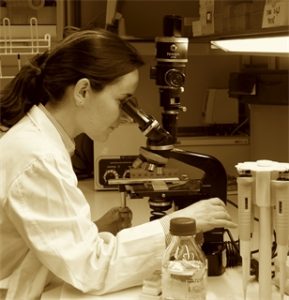 Sofía Pérez-del-Pulgar graduated with a degree in Chemistry (major in Organic Chemistry) from the University of Barcelona, Spain, in 1995. She performed her doctoral thesis at the Liver Unit in Hospital Clínic, Barcelona studying leukocyte activation and migration in experimental portal hypertension. After a period as a postdoc, first at the University of California, Irvine, and then at the Barcelona Scientific Park, Spain, she worked in R&D in the pharmaceutical industry in the hemoderivatives sector. In 2007, she joined the Viral Hepatitis Lab at IDIBAPS, Hospital Clinic, CIBERehd (Barcelona, Spain) to study the influence of viral and host factors on natural history and treatment of viral hepatitis. Currently, she investigates the clinical relevance of cccDNA persistence and the impact of immune response alterations on HBV infection recurrence after NUC treatment discontinuation. She is also interested in exploring surrogate markers for HBV replication and identifying host determinants of liver disease progression in chronic hepatitis delta.
Sofía Pérez-del-Pulgar graduated with a degree in Chemistry (major in Organic Chemistry) from the University of Barcelona, Spain, in 1995. She performed her doctoral thesis at the Liver Unit in Hospital Clínic, Barcelona studying leukocyte activation and migration in experimental portal hypertension. After a period as a postdoc, first at the University of California, Irvine, and then at the Barcelona Scientific Park, Spain, she worked in R&D in the pharmaceutical industry in the hemoderivatives sector. In 2007, she joined the Viral Hepatitis Lab at IDIBAPS, Hospital Clinic, CIBERehd (Barcelona, Spain) to study the influence of viral and host factors on natural history and treatment of viral hepatitis. Currently, she investigates the clinical relevance of cccDNA persistence and the impact of immune response alterations on HBV infection recurrence after NUC treatment discontinuation. She is also interested in exploring surrogate markers for HBV replication and identifying host determinants of liver disease progression in chronic hepatitis delta.
What are you most looking forward to at ILC 2021?
I am looking forward to learning about the latest advances in viral hepatitis fresh from the oven!
What can our delegates expect to take away from your session (Viral hepatitis experimental) at ILC 2021?
Delegates attending this session will get a deeper insight into HBV biology, particularly the existence of focal differences in HBV RNA amount in the human liver and the outcome of HBV integration and cccDNA in hepatitis B patients achieving functional cure.
We will also learn about the interplay between HBV and HDV and the impact of IFN response in limiting HDV spread. Finally, we will find out how human liver organoids can recapitulate HEV replication cycle for the identification of novel therapeutic targets.
Why should people attend the ILC 2021?
There are many reasons to attend the ILC 2021. It is a great opportunity to stay up-to-date, present your data, meet your peers and get ideas for starting new collaborations.
Why attend ILC 2021
Every year, scientific and medical experts from a broad range of fields come together from around the world at the International Liver Congress™ to learn about the latest in liver research. Delegates come not only from hepatology, but from gastroenterology, internal medicine, cell biology, transplant surgery, infectious diseases, microbiology, virology, pharmacology, pathology, radiology, and imaging.
The International Liver Congress™ 2021 will be all about beating liver disease together. We will tackle this challenge from multiple perspectives, drawing on multidisciplinary expertise. ILC 2021 will be your live EASL Campus experience, enabling you to broaden your knowledge, notably your clinical know-how, and build bridges, between people and areas of expertise.
At the International Liver Congress™ 2021, EASL is turning the focus to beating liver disease, together – from multiple perspectives, drawing on multidisciplinary expertise. Doctors, patients and patient groups, allied health professionals (AHPs), and policymakers will discuss important new insights and information.
Delegates will hear the latest epidemiological and real-world data on the latest liver research.
Top reasons to attend ILC 2021:
- ILC is EASL’s annual flagship congress and attracts around 10,000 delegates and 250 media representatives from all over the world
- Specialists share recent data, present studies, and findings
- Discuss the hottest topics on liver disease
- Excellent international networking opportunity
Polish your expertise
- Get up to speed on the latest in learning, a carefully curated selection of original live and on-demand content from world-renowned experts
- Tap into the ILC 2021 scientific programme of unprecedented global relevance
- Listen to and interact with the experts chairing sessions
- Learn about the latest science, education, and advances in liver disease therapy
- Fine-tune your expertise, following numerous sessions: abstract sessions, poster tours, interactive sessions, industry symposia, and wrap-up sessions
- Enjoy exclusive access to the full on-demand content after the event, until 30 August 2021.
Connect with peers
- Enjoy easy access from anywhere worldwide, with key presentations, just a click away
- Mingle with your peers at the EASL Community Hub
- Benefit from attractive registration rates for EASL members, Young Investigators, nurses, and AHPs
- Network with 10,000+ members of this highly engaged hepatology community
- Connect with industry leaders, participating in industry symposia
- Take part in the online conversation, using #ILC2021 and following us @EASLnews
- Interact directly, putting your questions to leading experts via the interactive digital platform hosting the event
Share your knowledge
- Share knowledge with your peers and leaders in the field, discussing the latest research and trends
- Share your views, chatting live, including with representatives at exhibitions, industry symposia, EASL staff, partners, and consortia
- Visit EASL’s virtual booths and partner booths including sister societies and national associations
- Become part of our community, signing up as an EASL member and then sharing your expertise with us

